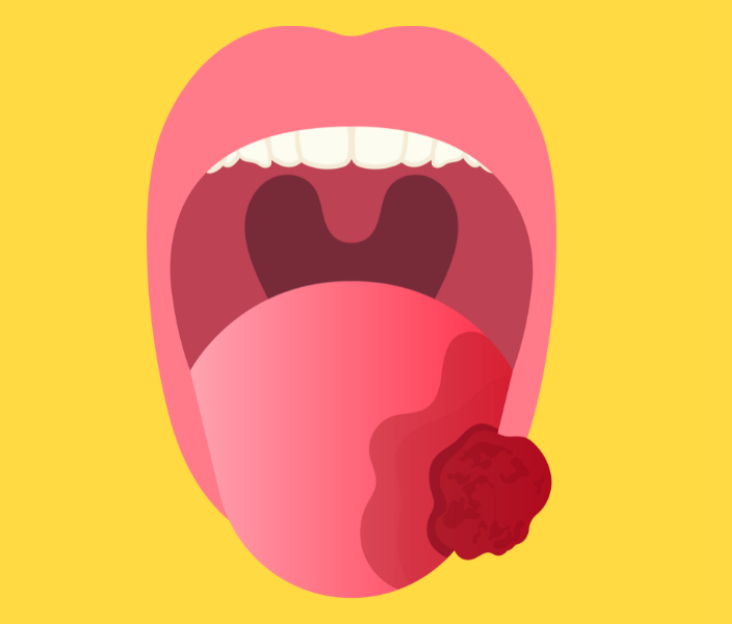
12 Nov, 2024

12 Nov, 2024

This article is contributed by Dr. Dushyant Mandlik, Consultant - Surgical Oncology (Head & Neck, Robotic and Reconstructive Surgery Specialist), HCG Cancer Centre, Ahmedabad.
Oral cancer is the sixth most prominent type of cancer worldwide, with India accounting for about a third of the total burden. It is also the second country to have the largest number of oral cancer cases.
As we learn about its prevalence, it is also important for us to understand the risk factors that are associated with its incidence. Some of the main risk factors associated with oral cancers are tobacco consumption, HPV infection, bad oral hygiene, dental trauma, etc.
Thanks to the constant research that is happening in the field of head and neck oncology, we are learning something new about oral cancer and its management every day, be it how to prevent it, how to detect it in its early stages, or how to treat it in a better way.
Today, unlike before, we can dive into much deeper levels of understanding of how oral cancer occurs. This higher level of understanding plays a pivotal role in treating any oral cancer case with the right treatment, for the first time.
At HCG, patients can consult the best oral cancer specialists in Ahmedabad, who have vast experience in devising and administering value-based and patient-centric treatment and care.
Back then, oral cancer treatment was not as advanced as it is today. Preserving the structure and function during the treatment was a big challenge.
After oral cancer surgery, adjuvant treatment in the form of radiation therapy and chemotherapy came with inevitable damage to the healthy tissue, as they were not as precise as they are today. However, this is no longer the case.
Here is Dr. Dushyant Mandlik, head and neck cancer surgeon, talking about the crucial aspects of head and neck cancer treatment:
We have some highly advanced treatment approaches for oral cancers that not only preserve the structure and function of the organ but also preserve the quality of life in patients.
Minimal access surgery was not an option for head and neck cancers until a few years ago, and traditional surgeries, which involved large excisions, came with drawbacks like visible scars, a lengthy recovery, breathing/swallowing difficulties, etc.
Minimal Access Adequate Resection Surgery for Head & Neck Cancer (MAARSH), also known as minimal access surgery, addresses these drawbacks.
Since minimal access surgeries involve smaller to no incisions, the recovery time and the risk of treatment-related complications are reduced significantly. There is minimal scarring, and patients hardly experience breathing/ swallowing difficulties. These surgeries also help patients return to their normal activities at a faster rate.
As the name says, organ preservation in oral cancer treatment refers to treating the tumor
without having to remove the entire organ. Organ preservation surgeries play a significant role in preserving the quality of life of oral cancer patients. The preservation of a functioning tongue and jawbone matters a lot.
“BACK IN THE DAY, ORAL CANCER SURGERIES OFTEN LED TO FACIAL DISFIGURATION, AND THIS NEGATIVELY IMPACTED THE PATIENT’S QUALITY OF LIFE AND CONFIDENCE. TODAY, RECONSTRUCTION HAS BECOME AN IMPORTANT PART OF ORAL CANCER TREATMENT.” DR. DUSHYANT MANDLIK
During reconstruction surgery, soft tissues, or bone from a different part of the body are used to reconstruct the mouth region. Reconstruction may also be performed through microvascular surgery, wherein surgeons cut and sew tiny blood vessels under a microscope.
Microvascular surgeries are often used to restore the oral structures that are responsible for functions such as speaking, chewing, and swallowing food. This surgery
may also be followed by dental implants in some cases.
Adjuvant therapies become important in oral cancer patients as they increase the chances of disease-free and metastasis-free survival. This approach involves administering oral cancer treatment without surgery.
Adjuvant therapies are administered after oral cancer surgery, and they commonly include radiation therapy and chemotherapy.
The purpose of adjuvant therapy is to ensure that there are no residual cancer cells left after oral cancer surgery.
Apart from the ones discussed already, oncologists are using various other treatment techniques for oral cancer treatment, and they include frozen sections, LASER treatment, and robotics.
Different advanced technologies used in oral cancer treatment include lasers, robotics, and nanoparticles.
These technologies enhance the overall effectiveness of the treatment by making the treatment more precise and personalized.
The breakthrough solutions that we have discussed in this article have permanently changed how oral cancers are seen, treated, and managed.
Today, oral cancer can be treated with advanced surgeries, non-invasive approaches, and organ reconstruction. These treatment solutions have made it possible for oral cancer patients to get better treatment results and return to their best state of health as early as possible.
That said, the best oral cancer treatment may vary from one patient to another, depending on the individual case factors.
At HCG, we have some of the best oral cancer specialists in Ahmedabad who are skilled at successfully managing oral cancers while ensuring that the patients have a good quality of life post-treatment.

Dr. Dushyant Mandlik
MS, FUICC (Geneva), FGOLF (MSKCC USA)
Consultant - Surgical Oncology (Head & Neck, Robotic and
Reconstructive Surgery Specialist),
Dr. Dushyant Mandalik is a highly experienced surgeon who specializes in head and neck cancers. His expertise lies in performing minimally invasive robotic surgeries, and he has special interests in oral cavity surgery and reconstructive surgeries following head and neck cancer surgeries. Dr. Dushyant’s treatment approach is focused on minimally invasive procedures, innovative resection and reconstruction techniques, and the functional rehabilitation of patients.
During his free time, Dr. Dushyant likes to Read, Photography, Paint, Meditate.
To book an appointment with Dr. Dushyant Mandlik, please click here.
